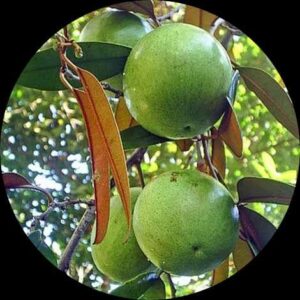- Empty cart.
- Continue Shopping
Avanakku
Original price was: ₹458.00.₹276.00Current price is: ₹276.00.
Genus : Ricininac
The Avanakku plant, also known as Vitex negundo or the Five-leaved Chaste Tree, is a highly valued medicinal herb. It has been used for centuries in traditional medicine for its various health benefits. Avanakku is known for its anti-inflammatory, analgesic, and antipyretic properties, making it useful for managing pain, reducing fever, and promoting overall wellness. This versatile plant can be incorporated into herbal remedies, teas, or used externally as a poultice. Cultivate Avanakku in your garden and harness its natural healing potential.
Ricinus communis is a species of flowering plant in the spurge family (Euphorbiaceae), and is commonly known as the castor oil plant. It is a large, fast-growing annual or perennial shrub that is native to tropical regions of Africa, but is now widely cultivated around the world.
Ricinus communis is best known for the castor oil that is obtained from its seeds. The oil is used for a variety of purposes, including as a laxative, a lubricant, a biofuel, and in the manufacture of soaps and other cosmetic products.
The plant has large, lobed leaves that can grow up to 1 meter in length and are arranged alternately on the stem. The leaves are a dark green color and have a glossy appearance. The plant produces clusters of small, red or yellow flowers that are followed by large, fleshy seedpods that contain the castor oil seeds.
Ricinus communis is a highly ornamental plant and is often grown for its striking foliage and large seedpods. However, it is also considered to be a highly invasive species in some areas, as it can easily spread and outcompete native vegetation.
In addition to its commercial uses, Ricinus communis has a long history of use in traditional medicine, where the seeds and leaves have been used to treat a variety of conditions, including skin conditions, digestive problems, and respiratory issues. However, it is important to note that the seeds of the plant are highly toxic if ingested and can cause serious health problems if not used properly.














Reviews
There are no reviews yet.